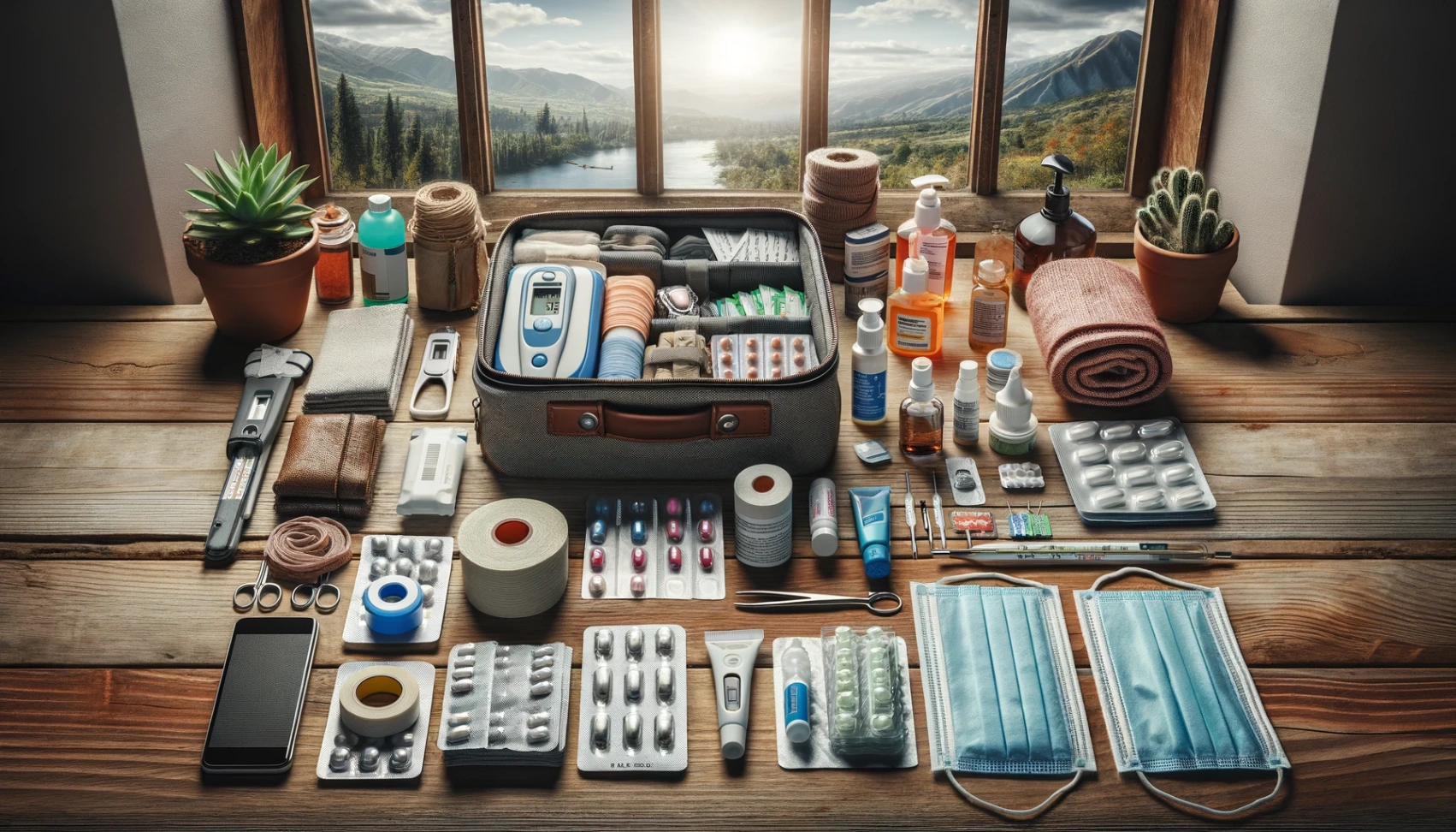Ensuring your health and safety before embarking on any journey, whether near or far, is crucial.
This guide explores essential travel health warnings and offers practical tips for safeguarding your well-being during your adventures.
Understanding Travel Health Warnings
Travel health warnings alert travelers to potential risks in specific destinations.
They cover concerns like disease outbreaks, natural disasters, or political unrest, helping travelers stay safe during their journey.
Sources of Travel Health Warnings
Before embarking on a journey, you must be aware of potential health risks in your destination. Here are some key sources of travel health warnings:
- Government agencies (e.g., CDC, WHO)
- Travel advisories from foreign offices
- Health organizations and NGOs
- Online travel forums and communities
- Travel insurance providers

Common Types of Health Warnings
Understanding standard health warnings helps you prepare for travel. Here are some types:
- Disease Outbreaks: Alerts about infectious diseases, symptoms, and prevention.
- Natural Disasters: Warnings for calamities like hurricanes, earthquakes, or tsunamis.
- Political Unrest: Advisories on civil unrest, protests, or conflicts in areas.
- Environmental Hazards: Notifications on pollution, wildfires, or extreme weather.
- Security Threats: Alerts on terrorism, crime, or kidnappings, with safety guidance.
Preparing for Your Trip
Preparing for your trip involves essential steps to ensure a safe journey. Here’s what you need:
Research Destination-Specific Health Risks
Before traveling, research destination-specific health risks for preparedness. Here’s how:
- Check Prevalent Diseases: Identify common illnesses and health risks.
- Understand Environmental Hazards: Research potential dangers like weather conditions.
- Explore Healthcare Infrastructure: Assess the quality of available medical services.
- Look into Water and Food Safety: Learn about contamination risks and precautions.
- Consider Local Hygiene Practices: Understand cultural norms and adapt accordingly.
Consult Healthcare Providers
Consulting healthcare providers before your trip is essential. Here’s what you need to do:
- Schedule a Visit: Make an appointment to discuss your travel plans.
- Discuss Vaccinations: Review and receive necessary vaccines.
- Obtain Prescription Medications: Ensure you have an ample supply.
- Seek Health Advice: Get guidance on common travel-related issues.
- Address Concerns: Discuss specific health risks for your destination.
Purchase Travel Insurance
Before your journey, securing travel insurance is crucial for peace of mind. Here’s what to do:
- Understand Coverage Options: Research different plans available.
- Compare Policies: Assess providers for suitable coverage.
- Read the Fine Print: Review policy details carefully.
- Purchase in Advance: Buy insurance well before departure.
- Keep Documentation handy: Carry copies of policy and emergency contacts.

Staying Safe During Travel
Staying safe during travel is paramount for a smooth and enjoyable journey. Here are some essential tips to ensure your well-being while exploring:
Practice Good Hygiene
Practicing good hygiene is essential for maintaining your health while traveling. Here’s how to ensure cleanliness and well-being:
- Wash Your Hands Frequently: Use soap and water for at least 20 seconds, especially before eating or touching your face.
- Use Hand Sanitizer: Carry alcohol-based hand sanitizer when soap and water are not readily available.
- Avoid Touching Your Face: Minimize contact with your eyes, nose, and mouth to reduce the risk of transferring germs.
- Keep Personal Items Clean: Disinfect frequently touched items such as phones, wallets, and keys regularly.
- Practice Respiratory Etiquette: Cover your mouth and nose when coughing or sneezing to prevent germ spread.
Be Cautious with Food and Water
Being cautious with food and water is crucial to avoid foodborne illnesses during travel. Here’s how to ensure safe consumption:
- Drink Bottled Water: Opt for sealed bottles to prevent contamination from unsafe tap water.
- Eat at Reputable Establishments: Choose restaurants and food vendors with clean and hygienic food preparation practices.
Protect Yourself from Insect Bites
Protecting yourself from insect bites is crucial while traveling. Here’s how:
- Use Insect Repellent: Apply EPA-registered repellents containing DEET or picaridin.
- Wear Protective Clothing: Cover skin with long-sleeved shirts and long pants.
- Avoid Peak Mosquito Activity: Stay indoors during dawn and dusk.
- Use Bed Nets: Sleep under insecticide-treated nets.
- Choose Screened Accommodations: Opt for places with screened windows and doors.
Stay Informed and Vigilant
Staying informed and vigilant is vital to ensuring your safety while traveling. Here are essential steps to remain aware and alert:
- Monitor Local News and Alerts: Stay updated on any developments or events in your destination that may affect your safety.
- Follow Guidance from Authorities: Adhere to any advisories or instructions issued by local authorities or government agencies.
- Be Aware of Your Surroundings: Stay vigilant of unusual or suspicious activities.
- Trust Your Instincts: If something feels unsafe, trust your gut instinct and take appropriate precautions.
- Stay Connected: Maintain communication with friends, family, or fellow travelers, especially when exploring unfamiliar areas.
Emergency Preparedness
Being prepared for emergencies is crucial for any traveler. Here’s what you need to know to stay ready:
Know the Emergency Contact Information
Knowing emergency contact information is crucial for your safety. Here’s what you need:
- Local Emergency Services: Remember the hotline numbers for police, fire, and medical services.
- Medical Facilities: Locate nearby hospitals, clinics, and pharmacies.
- Embassy or Consulate: Keep contact details for your country’s diplomatic mission.
- Travel Insurance Provider: Save the insurer’s contact information for assistance.
- Emergency Contacts: Carry a list of friends or family who can help.

Pack a Travel Health Kit
Understanding the importance of emergency preparedness is crucial for travelers. Here’s a breakdown of essential steps to ensure readiness:
- Know Emergency Contact Information: Familiarize yourself with crucial local services and support numbers.
- Pack a Travel Health Kit: Include vital supplies in medical emergencies and basic first aid.
- Develop a Communication Plan: Establish a strategy for staying in touch with loved ones during emergencies.
- Familiarize Yourself with Local Laws and Customs: Research your destination’s legal and cultural norms.
- Stay Updated on Travel Advisories: Monitor official alerts and advisories for changes affecting your travel plans.
Develop a Communication Plan with Family and Friends
Developing a communication plan is crucial for staying connected. Here’s how:
- Share Contact Information: Exchange phone numbers and emails.
- Set Regular Check-Ins: Agree on specific times to confirm safety.
- Designate an Emergency Contact: Choose someone to coordinate communication.
- Establish Meeting Points: Identify locations for potential reunions.
- Use Technology Wisely: Utilize apps and messaging for real-time updates.
The Bottomline
It is crucial to prioritize health and safety before travel. Stay informed, take precautions, and be prepared for any unforeseen circumstances.
Remember, a little preparation goes a long way in ensuring a smooth and enjoyable journey. Safe travels and happy exploring!











